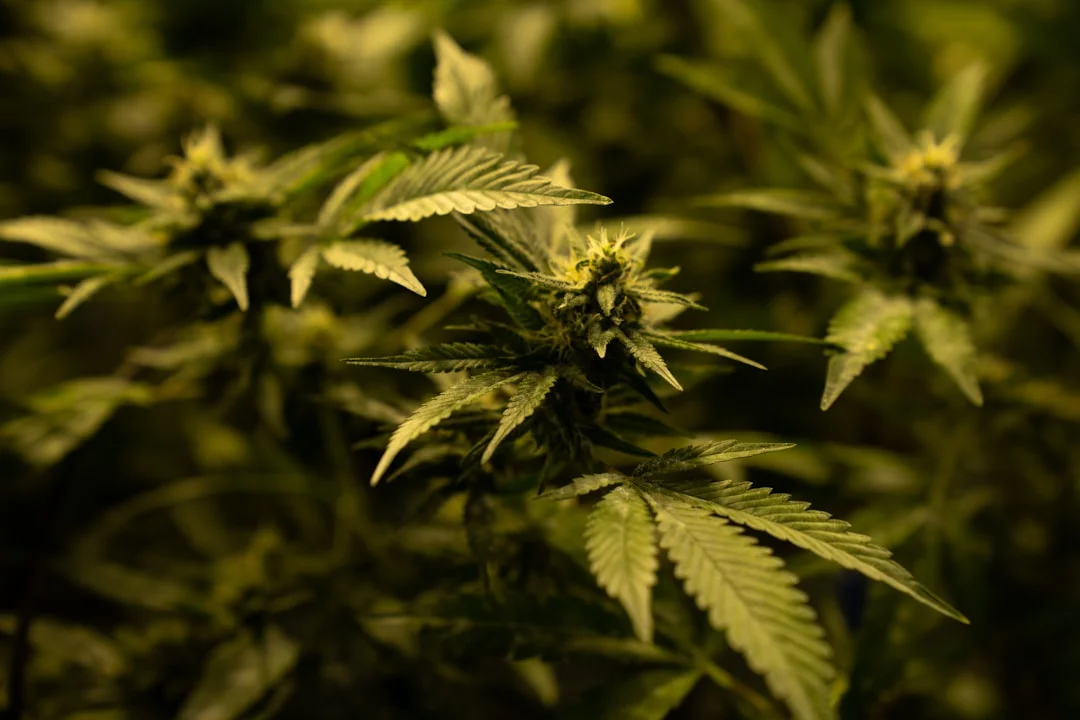Estimated Reading Time: 8 minutes
LLt’s be honest, the world of natural health can feel like a confusing maze.
Buzzwords like “CBD,” “hemp,” and “oil” get thrown around, and it’s easy to feel lost. But don’t worry, you’re not alone.
Today, we’re going to clarify the difference between hemp oil and CBD oil – two popular wellness products – and help you understand what makes them tick.
Think of it as a friendly guide to navigate the hemp and CBD landscape.
I remember when I first started exploring these options; the sheer volume of information was overwhelming.
I spent hours researching, cross-referencing articles, and talking to friends who had experience.
The goal was simple: to separate fact from fiction and figure out what would best serve my needs.
Hopefully, this article will save you some of that legwork.
Hemp oil, also often referred to as hemp seed oil, is extracted from the seeds of the Cannabis sativa plant.
This is a crucial starting point in understanding the difference between hemp oil and CBD oil.
The seeds themselves contain very little to no cannabinoids, including CBD (cannabidiol) and THC (tetrahydrocannabinol), the psychoactive compound.
This is important because it helps us understand why it does not have the same effects as its cannabinoid-rich cousin.
Think of hemp oil as a nutritional powerhouse.
It’s rich in essential fatty acids, including omega-3 and omega-6, in a ratio that’s considered ideal for human health.

It also contains vitamins, minerals, and antioxidants.
Many people use hemp oil for culinary purposes, adding it to smoothies, salads, or drizzling it over finished dishes.
It has a slightly nutty flavor, adding a subtle and pleasant element to meals.
For skin care, hemp oil is favored for its moisturizing and anti-inflammatory properties.
It can help to soothe dry skin, reduce redness, and even promote wound healing. I personally use it as a part of my hair and skin routine.
The oil is very effective in making my hair silky smooth, which can also boost self-confidence!
Now, let’s move on to CBD oil. The most crucial difference between hemp oil and CBD oil lies in their composition.
CBD oil is extracted from the flowers, leaves, and stalks of the cannabis plant.
The extraction process specifically isolates the cannabidiol (CBD) compound.
Unlike hemp oil, CBD oil is primarily valued for its potential therapeutic effects on the body’s endocannabinoid system (ECS).
CBD is a non-psychoactive cannabinoid, meaning it doesn’t produce the “high” associated with THC.
This makes it a popular choice for people seeking potential health benefits without the mind-altering effects.
Research suggests that CBD may offer relief from various conditions, including chronic pain, anxiety, and sleep disorders.
Keep in mind that CBD is still under investigation, and while research is promising, more studies are needed to fully understand its range of effects.
I recall my friend, Sarah, battling severe anxiety. She tried various medications without success.

After extensive research, she decided to give CBD a try.
While it wasn’t a magic bullet, she found that it helped her to manage her symptoms significantly, allowing her to regain control of her life.
Let’s break down the difference between hemp oil and CBD oil in a clear, easy-to-understand format:
The method of extraction plays a crucial role in the quality and effectiveness of both hemp oil and CBD oil.
Hemp oil is typically extracted through a cold-pressing process.
This method ensures that the oil retains its nutritional value, including essential fatty acids and vitamins.
Cold-pressed hemp oil has a rich, green color and a distinct nutty flavor.
CBD oil extraction methods are a little more sophisticated.
The most common is CO2 extraction, which uses carbon dioxide under high pressure to separate CBD from the plant material.
This method is considered safe and efficient, producing a high-quality oil with minimal contaminants.
Another method is solvent extraction, which uses solvents like ethanol. It is a bit less safe, and the oil has to be further purified.
It’s understandable to get confused by the overlapping terms, so let’s address some of the common misconceptions surrounding the difference between hemp oil and CBD oil.
Misconception 1: All hemp products are the same.
The Reality: Hemp oil and CBD oil are distinct products with different properties and uses.
Misconception 2: Hemp oil will get you high.

The Reality: Hemp oil contains trace amounts of THC, and its low concentration won’t cause any psychoactive effects.
Misconception 3: CBD oil is a cure-all. The Reality: While promising, research on CBD is ongoing.
It may offer relief for certain conditions but isn’t a guaranteed cure.
Understanding the difference between hemp oil and CBD oil is the first step, but how do you choose the right product?
Start by considering your goals. Are you seeking a nutritional boost, better skin, or potential relief from pain or anxiety?
If your primary goal is nutrition or skincare, hemp oil is a great option.
If you’re interested in the potential therapeutic benefits of CBD, CBD oil is the way to go.
Next, consider the quality of the product.
Look for third-party lab testing, which ensures that the product contains the advertised amount of CBD and is free from contaminants.
Always check the product’s label and research the brand before making a purchase. Remember, a well-informed decision is a happy and healthy decision.
I made the mistake of buying a cheaper CBD oil early on, without checking for third-party testing.
Unfortunately, it was ineffective and likely contained very little CBD.
This experience taught me the importance of thorough research and choosing reputable brands.
In the grand scheme of wellness, understanding the difference between hemp oil and CBD oil is akin to learning the difference between a healthy salad and a supplement – both contribute in different ways.
Hemp oil is a nutritional powerhouse, while CBD oil offers a range of potential therapeutic benefits.

Ultimately, the best choice for you will depend on your individual needs and preferences.
With a little knowledge and careful consideration, you can confidently incorporate these powerful ingredients into your wellness routine.
So, embrace the journey, be curious, and listen to your body. It knows best!
Ready to explore more about healthy living and natural wellness?
Join our newsletter for weekly health tips!
Frequently Asked Questions
Is hemp oil the same as CBD oil?
No, hemp oil and CBD oil are not the same. Hemp oil, also known as hemp seed oil, is extracted from the seeds of the hemp plant and contains little to no CBD. CBD oil is extracted from the flowers, leaves, and stalks of the cannabis plant and is rich in CBD.
The key difference lies in the source and the primary active compounds; hemp oil offers primarily nutritional benefits, while CBD oil is sought for its potential therapeutic effects.
Does hemp oil or CBD oil get you high?
Neither hemp oil nor CBD oil is likely to get you high. Hemp oil contains only trace amounts of THC, the psychoactive compound in cannabis, which is not enough to produce any psychoactive effects.
CBD oil generally contains very low levels of THC, but its primary purpose is to provide the potential therapeutic benefits of CBD without inducing a high.
Products containing a higher percentage of THC (above 0.3% by dry weight, for example) are more likely to induce psychoactive effects, however, are considered illegal by federal U.S. law.
What are the main benefits of CBD oil?
CBD oil is primarily valued for its potential therapeutic benefits. These include pain relief due to its anti-inflammatory effects, anxiety reduction by interacting with receptors in the brain, and improved sleep quality.
The precise effects of CBD can vary between individuals, and more research is underway to determine the optimal uses and dosages for various conditions. Moreover, it is critical to consult with healthcare providers to assess and monitor possible interactions with the existing medication.
Can you use hemp oil and CBD oil together?
Yes, you can use hemp oil and CBD oil together, and many people do so to take advantage of the unique benefits of each. Hemp oil can provide essential fatty acids and nutrients, supporting overall health, while CBD oil can offer targeted therapeutic effects.
They can be used in different ways, such as adding hemp oil to your diet and taking CBD oil for specific health needs. However, always start with a low dose of any new supplement and monitor your body’s response. Combining these two products could increase health benefits.
How do I choose a high-quality CBD oil?
When selecting CBD oil, prioritize quality and transparency. Look for products that have been third-party tested by an independent laboratory to verify the CBD content and ensure that they are free from contaminants such as pesticides, heavy metals, and other impurities.
Check the product’s label to verify that it contains the stated amount of CBD. Research the brand to confirm that it has a good reputation, and that the product is made using safe extraction processes like CO2 extraction.
Choosing high-quality CBD oil ensures that you’re getting what you pay for and potentially obtaining the desired therapeutic benefits.



